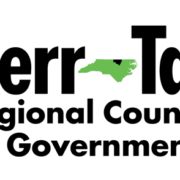TownTalk: Noel, Purvis, Burnette Discuss Ward 2 Candidacy
Two challengers – Lamont Noel and Dr. William R. Purvis – will face incumbent William Burnette for the Ward 2 at large seat of the Henderson City Council. All three candidates spoke recently with John C. Rose as part of WIZS’s coverage of the upcoming May 17 primary election; their recorded interviews aired on Monday’s Town Talk.
Economic development, combatting crime, increased salaries for city employees and beautification are among issues that the candidates discussed and shared ways they would work with city staff and fellow council members if elected.
Lamont Noel
Noel said he wants what’s best for the citizens of Henderson. “My ultimate goal is to improve the quality of life for the citizens of Henderson,” he said. “We have to find a way to make the city of Henderson more appealing and attractive” so businesses will want to locate here, he said.
Noel said he has been serving the community in numerous ways long before he decided to toss his hat into the ring and run for office. He has a long partnership with Vance County Schools, and has created community gardens for the public to enjoy. He also worked with Police Chief Marcus Barrow a few years ago to co-author a city ordinance and has been on the city’s redevelopment commission for more than a year.
“I’m not just becoming visible because I’m running for office,” he said.
Noel said he would work with city department heads to figure out how to get additional resources to the sanitation department to clean up empty lots that have become unsightly dumping grounds. Private property owners must be held accountable, he said.
“We have to figure out a way to clean up this town – it cannot be that hard,” Noel said.
Improving pay for police officers and other city employees may be one way to increase the retention rate, he said.
Henderson’s residents need more choices for affordable housing, he said. Although there are more options for lower income housing, the city needs “safe and decent housing for…people of all incomes.”
Henderson, he said, is the largest city between Raleigh and Petersburg, VA. That puts the city in a unique position to be ready for economic growth. “We have to invest in this city,” Noel said. “If we don’t, we’re going to have some problems.”
As he contemplates working as a member of the city council, Noel said he would work hard to be a voice for all citizens.
His vote is only one of eight, but it is a vote that he looks forward to making.
Dr. William Earl Purvis
Purvis hold a doctorate degree in ministry and his study of transformational leadership has served him well in his ministry and in his career working in the probation and parole field with formerly incarcerated individuals as they re-enter society.
“I want to be a voice for the people,” Purvis said, and added that lowering crime, improving the city’s image and creating new initiatives are just a few issues he would tackle as a member of the city council.
“We need to wake our downtown up,” Purvis said. Promoting downtown businesses and making downtown more user-friendly would be a plus as the proposed passenger and commuter rail planned for the city would bring additional visitors downtown.
Having so many shuttered storefronts in the the downtown area make the city look bad, he said. The community needs to find ways to support local business owners and enhance their efforts to revitalize the downtown district.
One way would be to attract or create festivals to come to the downtown area – whether it’s a motorcycle rally, Christian events or parades, Purvis said more events for diverse groups held downtown would help.
He said he looks forward to working with other members of the city council to bring positive change to Henderson. “I’m only one person,” he said, but it is important to reach out to people where they are to make change happen.
One tactic he said he would employ involves collecting information from city residents before voting on issues before the council.
“I will call a town hall meeting…and sit down with citizens…and we’ll have a parking lot discussion,” Purvis said. “I will voice what the people come to agreement with – this city belongs to all of us who live here. He said he would use citizen input to guide his voting.
Purvis cited youth development as an important need. A focus on young people’s mental health needs, as well as education and access to recreation as ways to invest in the youth of the city.
“I am a community leader,” he said. “I want to lead the community and get the people organized. If they live in Henderson, North Carolina, it’s my job to activate their voice.”
Purvis said he would bring experience as a team builder to his role as a council member. He said he believes in holding others accountable for their actions, but he also believes in giving second chances. “We need to stand together,” he said, to bring unity to Henderson.
William Burnette
The incumbent Burnette is completing his first term as a council member, and he said the council has laid some good groundwork for a number of projects to make a positive change within the city.
The West End URA is one project that has tremendous potential, but Burnette hopes for much more. “We don’t have enough single-family housing under $150,000,” he said. “We need that very badly in Henderson.”
In addition to affordable housing, jobs is another big-ticket issue. Henderson, once home to textile and other manufacturing facilities, has seen a rise in distribution facilities.
“We need jobs,” Burnette said. “We need somebody to come in here and employ 150 to 200 (people)- we don’t have that right now.”
The industrial park shell building project is one way the city can attract new industry. Having an attractive, unfinished structure just waiting to be modified to meet the needs of a specific business or industry, is a big plus.
Another plus for the city and its residents is a higher retention rate of police officers. “We have stepped up, as a council, about pay,” Burnette said. The chronic challenge seems to be that the city invests in training of new officers, only to have them leave for better-paying agencies nearby.
Burnette said the Chief Barrow has “really stepped up to bring that info” to the council. “We are completely behind that…we just can’t keep losing officers to other agencies.” But it’s not just police officers, he said – it’s all city employees. “Retention is a big thing with me,” Burnette added.
He gives credit to City Manager Terrell Blackmon for his role in offering guidance to the council. As a result, he said, the last four years have seen no increase in taxes by the city. “That’s a tribute to the council,” he said, and to Blackmon. “He’s doing a super job for the city of Henderson.”
Burnette said he’s enjoyed his term on the city council and would like four more years to continue helping to bring projects along. Projects like the water improvements, the splash park and downtown redevelopment.
“I’d like to continue to be a part of that,” he said. “I take pride in Henderson…I just think it’s a great place to live.”
Click Play
Lamont Noel begins at 0:25; William Earl Purvis begins at 16:40 and William Burnette begins at 33:40.









